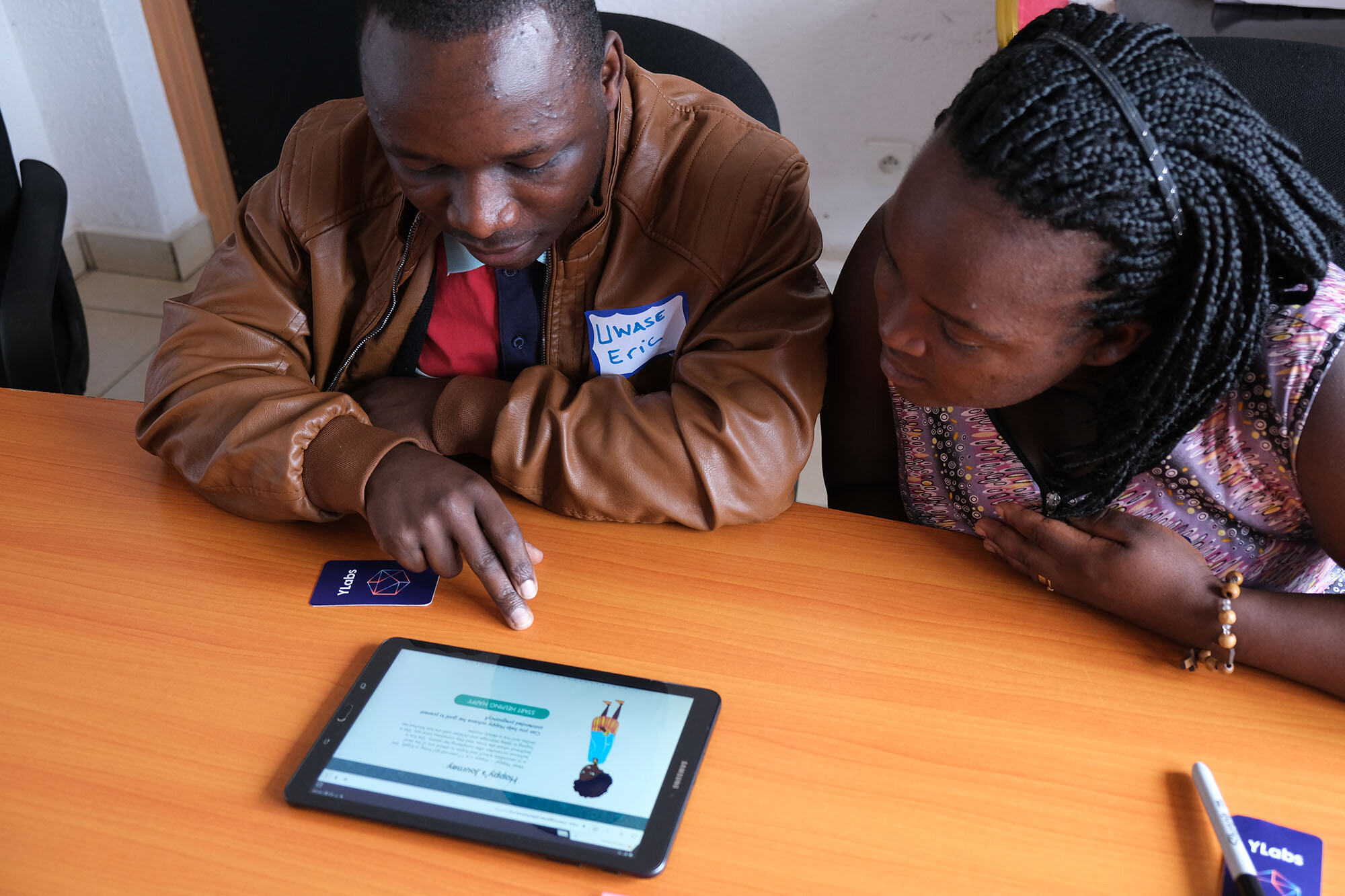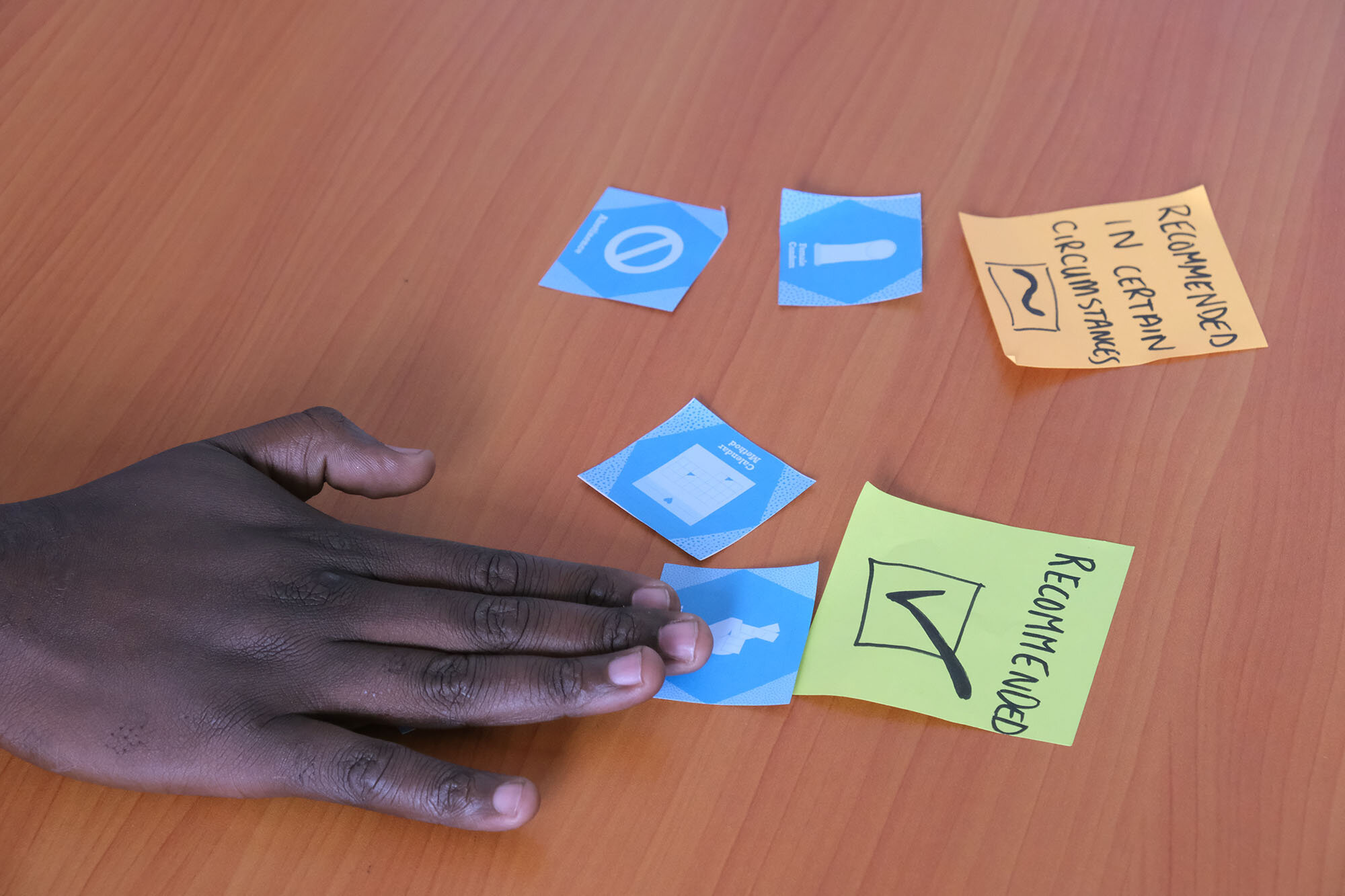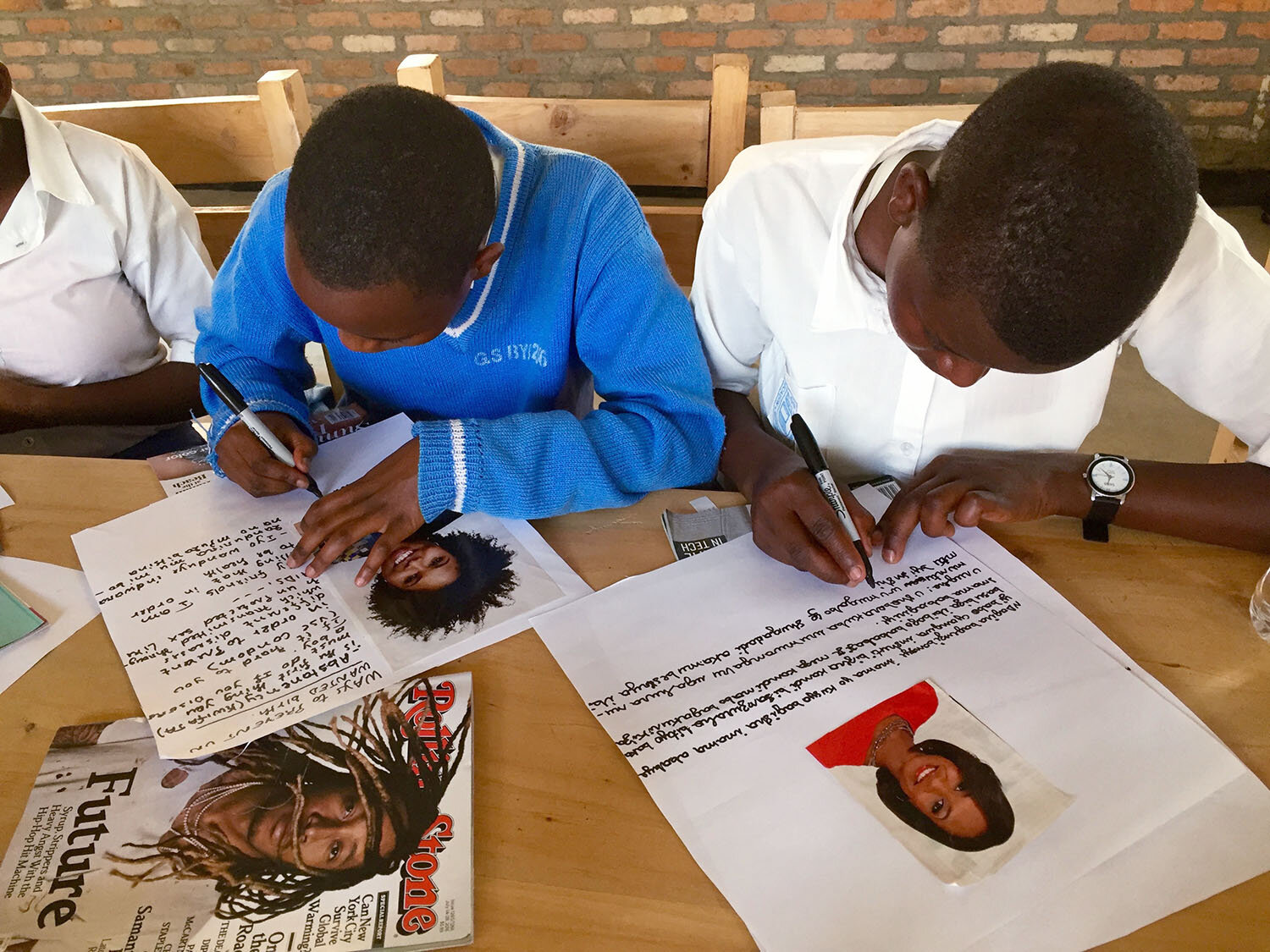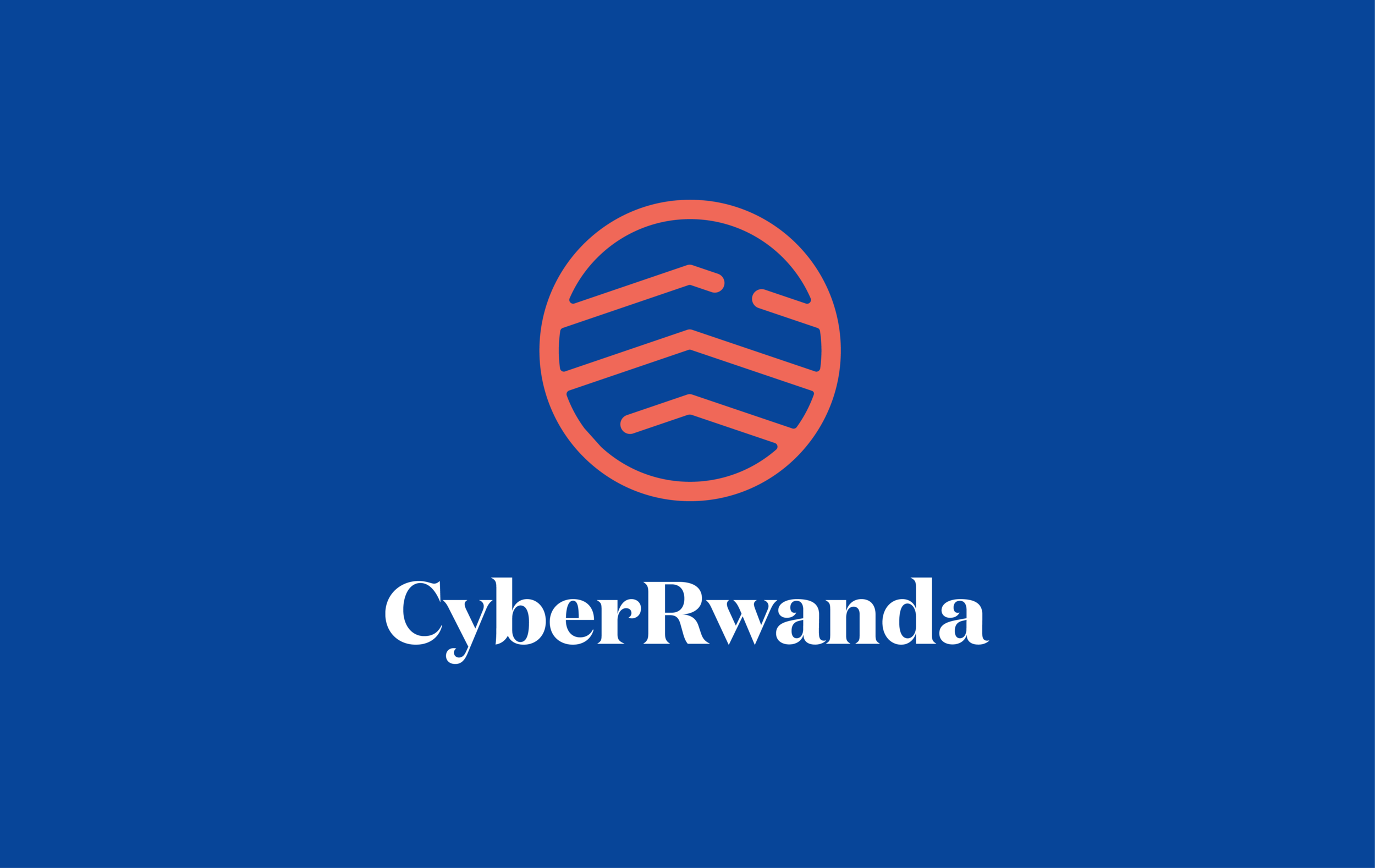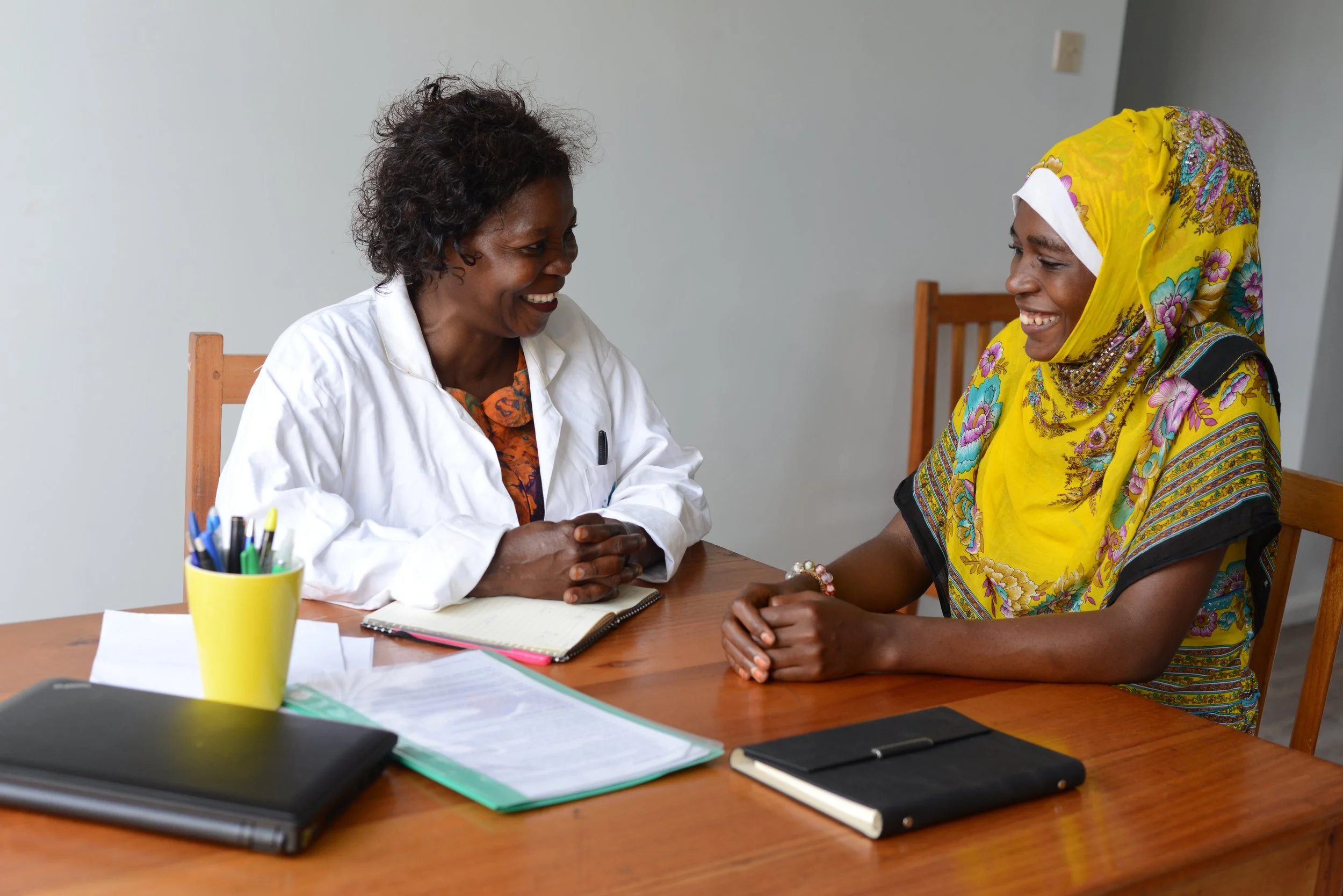CyberRwanda
Using digital education to improve the health and livelihoods of adolescents
Project:
CyberRwanda
Location:
Rwanda
Funders:
USAID, Packard Foundation, The Agency Fund
Partners:
Society of Family Health, YTH
Category:
Sexual & Reproductive Health
Challenge
Around the world, young people don’t have access to accurate and age appropriate Family Planning and Reproductive Health [FP/RH] information. Since FP/RH education is rarely comprehensive, adolescents naturally turn to the internet and social media for information, much of which is inaccurate, prescriptive, or difficult to understand. CyberRwanda puts engaging, evidence-based information into the palm of their hands.
Furthermore, while individual knowledge is critical, it isn’t enough to combat the stigma, shame, and bias barriers that young people may face in what is known as ‘the last meter of care’ - when they are purchasing FP/RH products, such as contraceptives. This is a challenge across the globe, and CyberRwanda is stepping up to the challenge.
FP/RH information and services are often only designed for married women. Even though Rwandan law allows youth access to FP/RH care, contraceptive use among adolescents remains highly stigmatized. Cultural norms, provider bias, or a lack of information about a need for FP/RH care makes finding youth-friendly services difficult for unmarried young people.
Innovation
CyberRwanda is a digital platform that aims to improve the health and livelihoods of urban and peri-urban adolescents (12-19 years) by supporting them at every step of their healthcare journey. Co-designed with over 800 Rwandan youth, the CyberRwanda online platform and corresponding program includes narrative storylines, a robust FAQ library, and a youth-friendly pharmacy locator. For young people who do not have phone access, CyberRwanda is currently available on tablets in 60 schools across six districts and popular Youth Centers across the country.
The CyberRwanda program also includes gamified digital and in-person training for pharmacists at partnering health facilities that educate them on topics such as provider bias, youth access to health products, and voluntary FP/RH care.
Using youth-driven design approaches, every aspect of CyberRwanda - from the visual look and feel to the character names and FAQ content - was designed with input from over 800 young people and 200 parents, teachers, health care providers, and community leaders. This has helped ensure that the platform is not only fun and educational but also that the content, tone, and feel meet young people’s needs and are more impactful in addressing teen pregnancy and HIV prevention. All content has been reviewed, validated, and approved through the appropriate technical working groups within the Rwandan government.
Next Steps
CyberRwanda is a 6-year project (2018 - 2024) being implemented in Rwanda by YLabs in close partnership with Society for Family Health - Rwanda, with guidance from the Ministry of Health, Rwanda Biomedical Center, and the Rwanda Education Board. Our evaluation partners are the School of Public Health at the University of California, Berkeley, and the University of Rwanda. Other key partners include Rwandan Adolescent Health stakeholders who support our content development and help ensure that key messages are aligned with Rwanda’s existing national health priorities to decrease unplanned teen pregnancies and HIV infection. The project is currently being implemented in two phases:
Phase 1: Randomized Controlled Trial (RCT) - Impact Study (2021-23)
We will be conducting a Randomized Controlled Trial (RCT) to assess the impact and cost-effectiveness of this comprehensive digital platform. A 3-arm cluster randomized controlled non-inferiority trial study will be conducted in 60 schools across six districts.
The three arms are:
A self-service model, where schools receive guidance on how to set up tablets in school libraries for individual use
A facilitated model, where schools receive training on organizing a formal school club dedicated to exploring CyberRwanda in a group setting
A control group of schools without CyberRwanda access
Phase 2: National Scale (2023-24)
If our impact evaluation shows CyberRwanda to be successful, we will expand access to the platform. The second phase of the project will be national-scale implementation, using media, community events, and mass media marketing to promote the launch of the product.
Project Achievements
Quarterly launch events in all 44 implementation schools: Quarterly launch events in all 44 (including four pilot schools) implementation schools were organized and conducted by schools themselves with minimal supervision from the CyberRwanda team.
CyberRwanda webcomic Season 3 development: Following the validation of the treatments and the scripts of the third season by the national Sexual and Reproductive Health Technical Working Group and youth, respectively, Season 3 scipts were developed by our content writer, reviewed with the donor-USAID and our Implementing partner SFH, and it is currently being illustrated.
Quarterly reflection meeting with Headmasters and district officials: In a bid to increase schools’ ownership and support of the program, we held a reflection meeting with all head teachers from the 44 intervention schools and 8 district officials in charge of education . This meeting discussed among other topics, the implementation progress, challenges and ways of improvements.
Platform changes and adaptation: As a result of intensive design fieldwork to better understand gaps in the product and what young people would like to see more of, below are some of the changes we are making to the platform:
Educational Content – This includes detailed information around SRH topics, products, and methods. It’s an opportunity for young people to have an experience that allows them to dive deeper into understanding menstruation, contraception, and HIV.
Crisis Flows – This feature addresses emergency scenarios in which young people require immediate support.
Offline Mode – We have been working closely with our developer to ensure that CyberRwanda is able to store content and make it accessible when network and internet connection is slow or not working at all.
Midline data collection: We have recently completed our midline data collection on a cohort of 6,182 students and have seen 95% retention after 12 months.
Publications
Digital self-care for improved access to family planning and reproductive health services among adolescents in Rwanda: preliminary findings from a pilot study of CyberRwanda
Sexual & Reproductive Health Matters | Volume 29, 2022
Using Human-Centered Design to Develop, Launch, and Evaluate a National Digital Health Platform to Improve Reproductive Health for Rwandan Youth
Global Health: Science and Practice | November 2021
Design and impact evaluation of a digital reproductive health program in Rwanda using a cluster randomized design: study protocol
BMC Public Health 20 | Article 1701 (2020)


